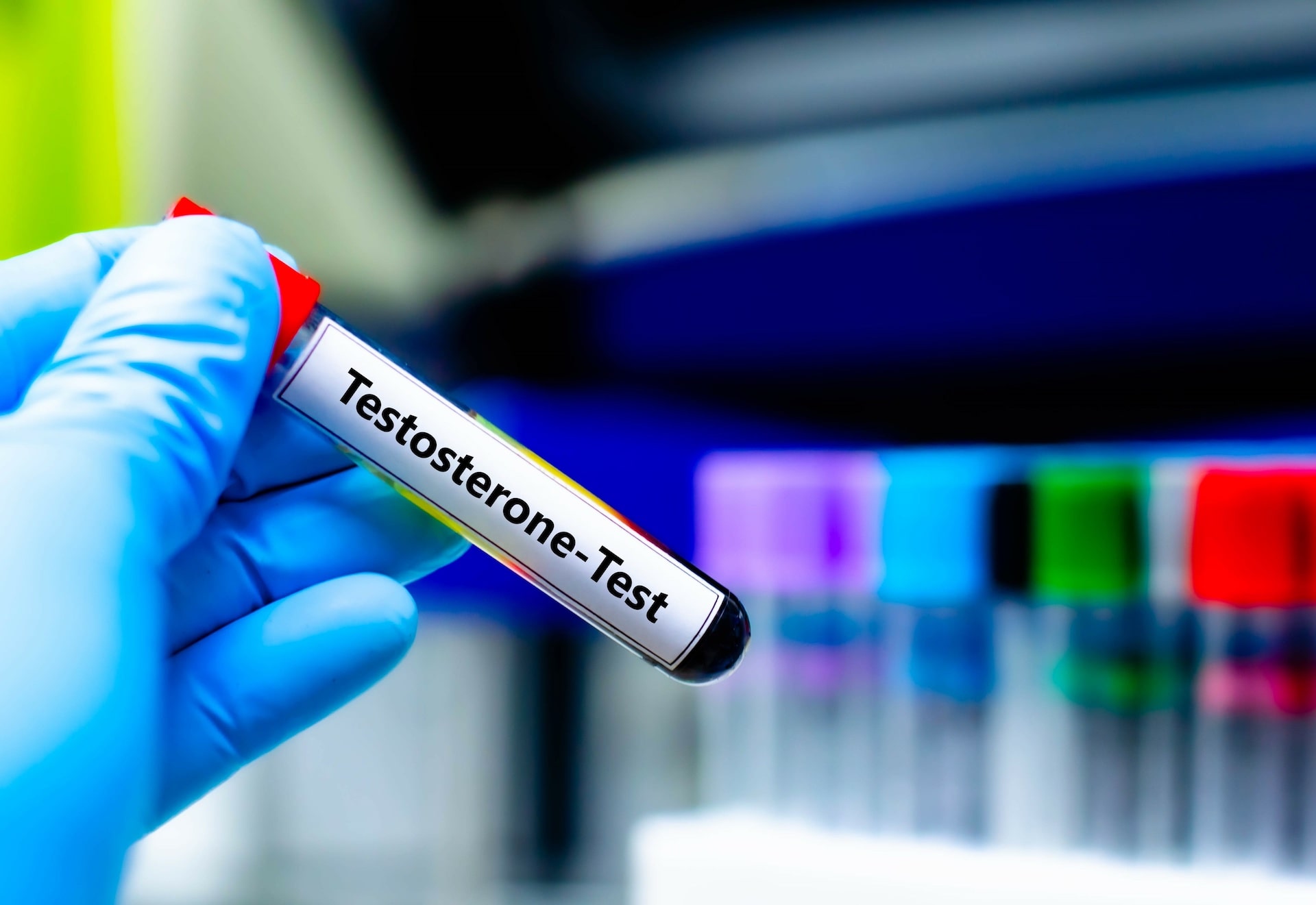Following the news of former President Joe Biden’s prostate cancer diagnosis, more men are taking a closer look at their prostate health—and rightfully so. At Kansas City Urology and Oncology (KCUC), we care for more prostate cancer patients than any other practice in the Kansas City area. As the most common cancer in men, prostate cancer deserves attention, understanding, and proactive screening.
With increased interest surrounding the condition, we’ve received many inquiries and wanted to share essential insights that can help men understand the risks, signs, and importance of early detection. We encourage all men to have open conversations with their primary care physicians or urologists about when and how to start prostate cancer screening.
Why Early Detection Matters
Prostate cancer is one of the most frequently diagnosed cancers among men worldwide. According to the American Cancer Society, about 1 in 8 men will be diagnosed with the disease at some point in their lives. The good news is that prostate cancer is often treatable, especially when caught early. In fact, the five-year survival rate for prostate cancer that hasn’t spread beyond the prostate is nearly 100%.
Every man’s risk is different, depending on factors like age, family history, ethnicity, and overall health. That’s why early screening and individualized risk assessments are so important.
The Role of Regular Prostate Cancer Screenings
KCUC strongly recommends that men begin prostate cancer screening between ages 40 and 55, depending on their risk level. Screenings should continue every one to two years until at least age 70 to 75, based on individual health and life expectancy.
A comprehensive screening includes a PSA (prostate-specific antigen) blood test and a digital rectal exam (DRE). To ensure you’re following the right screening schedule for your situation, talk to your doctor or consult with one of our expert urologists at KCUC.
Understanding the PSA Test
The PSA test measures the level of a protein called prostate-specific antigen in the bloodstream. This protein is produced by the prostate, and elevated levels may suggest prostate cancer, but they can also be caused by other conditions such as benign prostatic hyperplasia (BPH) or prostatitis (inflammation of the prostate). While a high PSA doesn’t always mean prostate cancer, it’s an important indicator that further evaluation might be needed.
Who Is Most at Risk for Prostate Cancer?
 Several key factors increase the likelihood of developing prostate cancer:
Several key factors increase the likelihood of developing prostate cancer:
- Age: The risk increases with age, especially after 50. It’s uncommon in younger men.
- Family History: If your father or brother had prostate cancer, your risk is significantly higher.
- Race and Ethnicity: African American men are more likely to develop prostate cancer, often at younger ages and with more aggressive forms.
- Genetic Mutations: Inherited mutations in genes like BRCA1 and BRCA2 can raise your risk.
- Lifestyle and Diet: Diets high in red meat and full-fat dairy may elevate risk, while a plant-rich diet may help reduce it.
Knowing your personal risk can help determine when to begin screening and how often it should be done.
Five Key Symptoms of Prostate Cancer
While prostate cancer can grow slowly and show no symptoms early on, advanced stages may present with:
- Urination Problems: Trouble starting urination, weak flow, frequent nighttime urination, or burning sensation.
- Blood in Urine or Semen: Always a cause for medical evaluation.
- Erectile Dysfunction: New or worsening erectile issues may be related.
- Pelvic or Back Pain: Persistent pain in the lower back, hips, or pelvis can be a sign that the cancer has spread.
- Fatigue or Unexplained Weight Loss: These may indicate more advanced disease.
Recognizing these warning signs early and discussing them with your doctor is vital.
What to Do If You Have Symptoms
 If you experience symptoms that could point to prostate cancer, here’s what to do:
If you experience symptoms that could point to prostate cancer, here’s what to do:
- Schedule a Doctor Visit: Your first step should be a consultation with your primary care provider or a urologist.
- Undergo Screening Tests: Your doctor may recommend a PSA test and DRE to check for abnormalities.
- Get Additional Testing: If results are concerning, your doctor might order imaging tests such as MRI or ultrasound, or a prostate biopsy to confirm diagnosis.
Treatment Options for Prostate Cancer
Treatment decisions are based on the stage of the cancer, age, general health, and personal preferences. At KCUC, we offer a comprehensive range of treatment options, including:
- Active Surveillance: For low-risk cancers, monitoring the condition with regular tests may be the best approach.
- Surgery: A radical prostatectomy can remove the prostate and surrounding tissue if the cancer is localized.
- Radiation Therapy: Both traditional X-ray radiation and advanced proton therapy are available for targeting cancer cells.
- Hormone Therapy: Reduces or blocks male hormones that fuel cancer growth.
- Chemotherapy: Often used when cancer has spread or doesn’t respond to other treatments.
- Immunotherapy: Boosts the body’s immune response against cancer.
- Targeted Therapy: Focuses on specific genetic changes or proteins involved in cancer development.
The effectiveness of treatment is greatly improved when prostate cancer is detected early. The five-year survival rate for localized and regional stages remains close to 100%.
If You’re Over 40, It’s Time to Get Tested
Prostate cancer doesn’t always announce itself with clear signs. Regular screenings can detect it before symptoms appear. That’s why KCUC encourages men over 40 to discuss prostate cancer testing with their doctor or urologist.
Each man’s situation is unique, and screening guidelines should be tailored based on risk factors and health status. A PSA test and prostate exam are small steps that could make a big difference.
Compassionate, Expert Care at KCUC
At Kansas City Urology and Oncology, we’re more than just a leading prostate cancer care provider—we’re a compassionate partner in your healthcare journey. We know how overwhelming a cancer diagnosis can be, and we’re committed to supporting you not just physically, but emotionally as well.
Our personalized approach ensures every patient receives care that’s tailored, thoughtful, and empathetic.
Proton Therapy at KCPI
 KCUC is proud to offer the most advanced radiation treatment available through Kansas City Proton Institute (KCPI)—the region’s only office-based proton therapy center. Proton therapy offers unmatched precision, targeting cancer cells while sparing surrounding healthy tissues.
KCUC is proud to offer the most advanced radiation treatment available through Kansas City Proton Institute (KCPI)—the region’s only office-based proton therapy center. Proton therapy offers unmatched precision, targeting cancer cells while sparing surrounding healthy tissues.
Unlike traditional hospital-based proton treatment, KCPI offers a more convenient and cost-effective outpatient setting. With easy access just off I-435 and Nall, we’ve taken the stress out of treatment—no massive hospital systems, no long wait times, and no unnecessary expense.
KCPI is changing the way Kansas City thinks about cancer treatment. That’s why Healthy Kansas City Magazine called us a “Beacon of hope and innovation.” Read the full article here: Kansas City Proton Institute – Powered by KCUC.
Take Control of Your Health Today
Your health is in your hands. Don’t wait until symptoms appear. Get tested early and stay informed. Talk to your doctor about your personal risk factors and get screened as often as recommended.
If you’d like to learn more about KCUC, prostate cancer, proton therapy at KCPI, or our Patient-First care model, contact one of the over 30 KCUC Urology and Oncology locations throughout Kansas and Missouri and schedule an appointment to see one of our board-certified urologists or oncologists. At KCUC, you see the best in KC… and we see you too!


